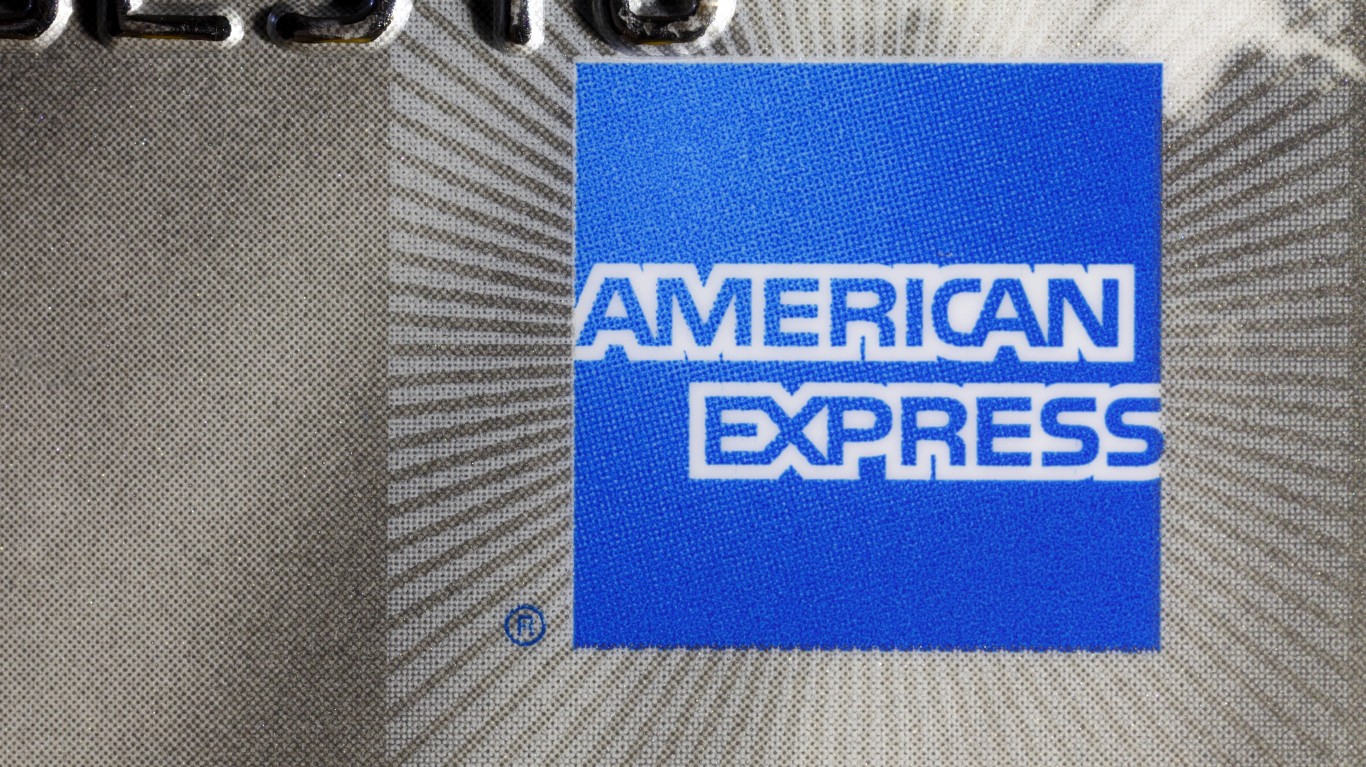Investing
This Analyst Expects Big Things From American Express and 3 Other Top Financial Stocks

Published:

Cash stashed in a bank savings account has been earning less than 0.1% interest for the past decade. That’s still better than bank stocks have done so far in 2022. Bank stocks have dropped by more than 23% since the beginning of the year.
[in-text-ad]
Shares in banks and credit card issuers have fallen far enough that they now offer an “attractive entry point” according to analysts at Baird Equity Research. In a research note Friday morning, Baird raised its rating on four financial services stocks from Neutral to Outperform while keeping its price target on three and raising it on one of the stocks. Financial firms included in the review were American Express Co. (NYSE: AXP), Capital One Financial Corp. (NYSE: COF), Fifth Third Bancorp (NASDAQ: FITB) and M&T Bank Corp. (NYSE: MTB).
The analysts’ overall view is that macroeconomic uncertainty caused by Fed tightening, higher inflation, and increased volatility already has been priced into these stocks and that they are trading at a discount of 15% to 20% based on the pre-provisioning net revenue, price to earnings (P/E) ratios and capitalization to assets ratio. Even increasing interest rates on savings accounts (deposit betas in bank jargon) “aren’t a major concern” to Baird’s analysts.
Recent weakness in share prices and a positive shift in sentiment have improved the risk/reward trade-off for these four stocks. Baird’s company ratings include a risk component as well as an investment component. Risk includes four levels: Low, Average, Higher and Speculative. All four stocks discussed in the research have either average (capital appreciation with an emphasis on safety) or higher (capital appreciation with acceptance of risk) risk ratings.
Baird’s price target on American Express was left unchanged at $175, and the risk score remained at Higher. The stock currently trades at a slight discount to its pre-provision net revenue and P/E, as well as at around 12 times estimated earnings per share for the second 12-month period (12 to 24 months out).
AXP has been executing very well and should continue leveraging its ongoing franchise investments into market share gains and earnings growth over the intermediate term. Strong customer retention levels, positive operating leverage, peer-leading credit metrics, and traction with younger consumers (millennials/Gen Z) leave the company well positioned overall.
The upside potential on the stock based on Thursday’s closing price of $137.50 and Baird’s target is 27.3%. American Express stock is down 15.5% so far in 2022. Key risks include slower customer spending, higher credit losses, and intensifying competition.
Capital One also had an unchanged risk assessment of Higher, and the price target of $145 was unchanged as well. The stock trades at around 1.1 times tangible book value, below the median of 1.65 for large-cap banks “despite COF’s better relative returns.”
[in-text-ad]
The analysts also noted that “loan growth trends are solid, COF is well positioned to continue generating capital, and management can likely pull back on marketing if needed.” Key risks include worse-than-expected consumer credit losses caused by falling unemployment claims or higher credit card delinquencies.
At Thursday’s closing price of $102.11, the implied upside on the stock is 42.0%. For the year to date, shares are down about 29%.
Fifth Third Bank’s risk assessment was unchanged at Higher, and the price target of $44 was also unchanged. The bank has strong liquidity positions and leverage to higher rates and is trading at discounts to longer-term medians on pre-provision net revenue, price to sales ratio, P/E ratio and capitalization to assets ratio.
The analysts also noted, “FITB is now trading nearly ~25% below its long term median [pre-provision net revenue] valuation and slightly below its post-crisis median.” Risks for the bank include negative operating leverage, slowing loan growth and net interest margin compression represent key risks for shares.
At Thursday’s closing price of $33.25, the upside potential based on Baird’s price target is 32.3%. For the year to date, the bank’s stock has dropped about 23.2%.
The risk assessment on M&T Bank remained at Average. Baird raised its $175 price target to $200. The analysts said the new price target assumes shares trade near 2.15 times the second 12-month period’s tangible book value. That level is below the stock’s post-crisis median level of about 2.3 times given lower returns in the current operating environment.
Key risks to Baird’s valuation are decelerating loan growth, net interest margin compression and integration issues stemming from its recently completed $8.3 billion merger with People’s United.
At Thursday’s closing price of $160.64, the upside potential based on Baird’s new price target is 24.5%. M&T’s stock has added 6% to its share price so far in 2022.
If you’re one of the over 4 Million Americans set to retire this year, you may want to pay attention.
Finding a financial advisor who puts your interest first can be the difference between a rich retirement and barely getting by, and today it’s easier than ever. SmartAsset’s free tool matches you with up to three fiduciary financial advisors that serve your area in minutes. Each advisor has been carefully vetted, and must act in your best interests. Start your search now.
Don’t waste another minute; get started right here and help your retirement dreams become a retirement reality.
Thank you for reading! Have some feedback for us?
Contact the 24/7 Wall St. editorial team.